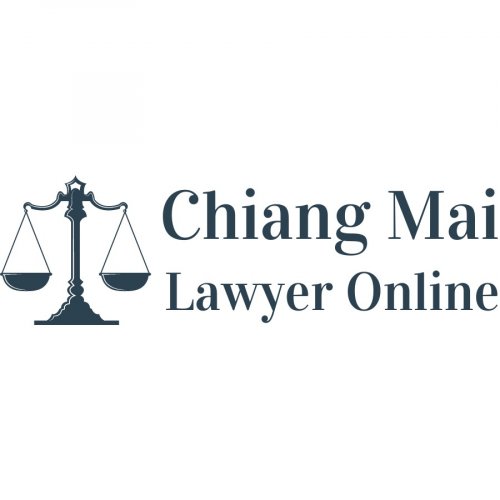Best Office Solutions Lawyers in Chiang Mai
Share your needs with us, get contacted by law firms.
Free. Takes 2 min.
List of the best lawyers in Chiang Mai, Thailand
Legal guides written by SIAM LEGAL INTERNATIONAL:
- Defamation Laws in Thailand: Criminal Charges and Civil Suits
- The State of Thailand’s Long-Term Resident (LTR) Visa Program in 2025
- The Penalties Of Not Filing Your Income Tax Return As A Foreigner In Thailand
About Office Solutions Law in Chiang Mai, Thailand
Chiang Mai, a burgeoning hub for business and commerce in northern Thailand, presents a diverse array of office solutions to support the growing demand from both local enterprises and international businesses. Office Solutions Law in Chiang Mai encompasses various legal facets such as leasing agreements, co-working space regulations, and compliance with local business ordinances. It ensures that businesses can operate smoothly, respecting both local customs and legal requirements. Understanding these laws is crucial for businesses to conduct their operations effectively and avoid legal pitfalls.
Why You May Need a Lawyer
In the realm of office solutions, several scenarios may necessitate seeking legal counsel:
- Negotiating Lease Agreements: Lawyers can provide invaluable assistance in negotiating terms with property owners or landlords, ensuring that lease agreements are clear, fair, and legally binding.
- Resolving Disputes: Legal disputes may arise involving property rights, lease terms, or other business-related disagreements.
- Compliance with Regulations: Navigating local business laws, including zoning regulations and health and safety standards, can be complex. Legal advice helps ensure compliance and avoid potential fines or sanctions.
- Expanding Business Operations: For foreign businesses or those seeking to expand, understanding the legal landscape for corporate offices or co-working spaces is crucial.
Local Laws Overview
In Chiang Mai, several local laws impact office solutions, which include:
- Commercial Leasing Laws: Govern the rights and responsibilities of both lessees and lessors, detailing aspects such as rent control, lease period, and termination conditions.
- Business Licensing: Requirements for registering and obtaining the necessary permits to legally operate an office space or co-working environment.
- Zoning Regulations: Specify where businesses can operate within Chiang Mai to ensure that commercial operations align with city planning and community standards.
- Health and Safety Regulations: Set by local and national authorities, these laws ensure that office environments maintain safety and health standards.
Frequently Asked Questions
What are the typical lease terms for office spaces in Chiang Mai?
Lease terms in Chiang Mai can vary significantly but typically range from one to five years. It's important to understand renewal options and early termination clauses before signing a contract.
Can foreigners legally lease office space in Chiang Mai?
Yes, foreigners can lease office space, but it's advisable to work with a lawyer to understand the specific regulations and ensure compliance with Thai law.
What are co-working spaces, and how are they regulated?
Co-working spaces are shared work environments where individuals or small businesses can rent desk or office space. They are regulated under the same laws as commercial office spaces.
What happens if there is a dispute over a lease agreement?
If disputes arise over a lease, parties often seek mediation to avoid lengthy court processes. Legal advice is crucial to navigate these situations effectively.
Are there any specific zoning laws affecting office locations in Chiang Mai?
Yes, Chiang Mai has specific zoning laws that dictate where businesses can operate. It's important to ensure that the chosen office location complies with these regulations.
Is it required to register my office space with local authorities?
While you may not need to register the physical space, businesses operating out of an office must have the proper business licenses and meet regulatory requirements.
How do business licenses work for office solutions?
Business licenses are required for any commercial activity. The type and number of licenses depend on the nature of the business and the office type being utilized.
What should I consider when drafting a lease agreement?
Consider factors such as rental costs, duration, renewal terms, permissible modifications to the space, and dispute resolution processes.
What legal responsibilities do office landlords have in Chiang Mai?
Landlords must maintain the premises in a habitable condition and ensure compliance with health and safety regulations. They also have specific insurance and tax obligations.
How can I ensure compliance with Thai employment law for my office staff?
It's important to understand Thai labor law, which includes provisions on working hours, employee benefits, and termination processes. Legal consultation is recommended to ensure compliance.
Additional Resources
Several resources can assist those seeking legal advice on office solutions in Chiang Mai:
- Chiang Mai Chamber of Commerce: Offers guidance and resources for businesses operating in Chiang Mai.
- Thailand Board of Investment (BOI): Provides information on incentives and regulations for foreign companies.
- Legal Business Consultants: Professional services specializing in business law and office solutions.
- Local Law Firms: Provide tailored legal advice and assistance for businesses in various sectors.
Next Steps
If you require legal assistance in office solutions, consider taking the following steps:
- Identify specific legal needs related to your office solutions, such as lease negotiation or compliance issues.
- Consult with a legal professional experienced in Thai business law, particularly one who is familiar with the Chiang Mai region.
- Gather all relevant documents related to your office space, including lease agreements and business licenses.
- Engage with local business networks to gain insights and recommendations for legal services.
- Stay informed about any changes in local laws and regulations that may affect office operations.
Understanding the intricacies of office solutions law in Chiang Mai is crucial for ensuring your business operates legally and efficiently. Taking these steps will help you navigate the legal landscape with confidence.
Lawzana helps you find the best lawyers and law firms in Chiang Mai through a curated and pre-screened list of qualified legal professionals. Our platform offers rankings and detailed profiles of attorneys and law firms, allowing you to compare based on practice areas, including Office Solutions, experience, and client feedback.
Each profile includes a description of the firm's areas of practice, client reviews, team members and partners, year of establishment, spoken languages, office locations, contact information, social media presence, and any published articles or resources. Most firms on our platform speak English and are experienced in both local and international legal matters.
Get a quote from top-rated law firms in Chiang Mai, Thailand — quickly, securely, and without unnecessary hassle.
Disclaimer:
The information provided on this page is for general informational purposes only and does not constitute legal advice. While we strive to ensure the accuracy and relevance of the content, legal information may change over time, and interpretations of the law can vary. You should always consult with a qualified legal professional for advice specific to your situation.
We disclaim all liability for actions taken or not taken based on the content of this page. If you believe any information is incorrect or outdated, please contact us, and we will review and update it where appropriate.
















